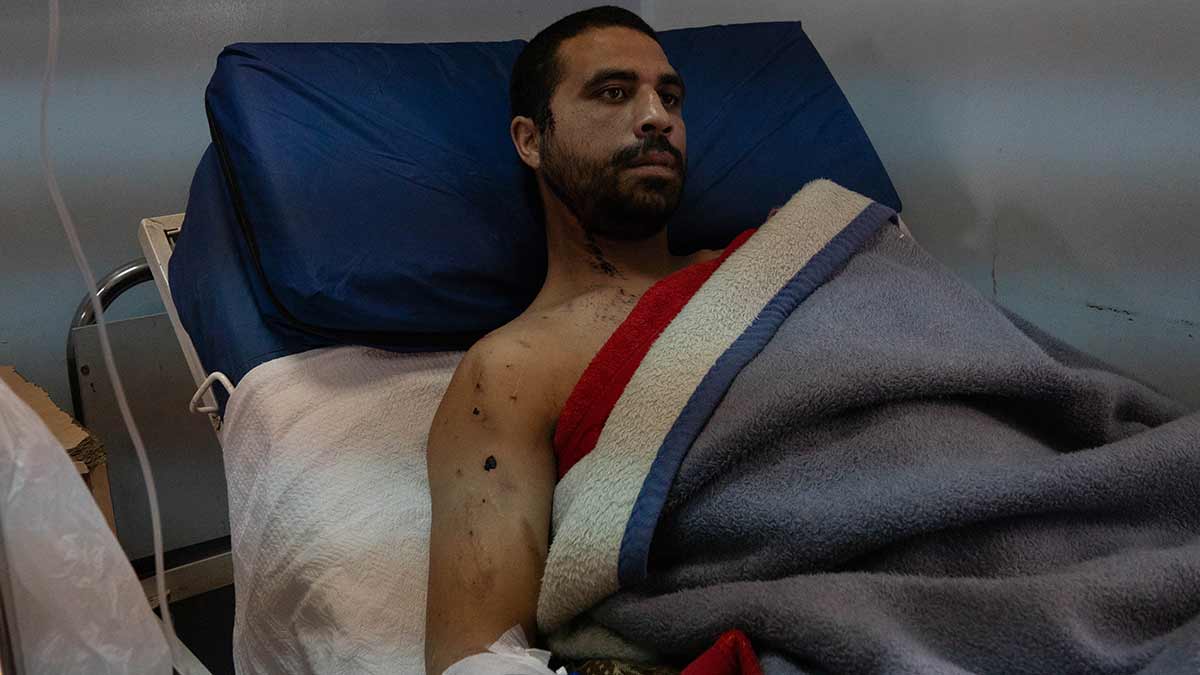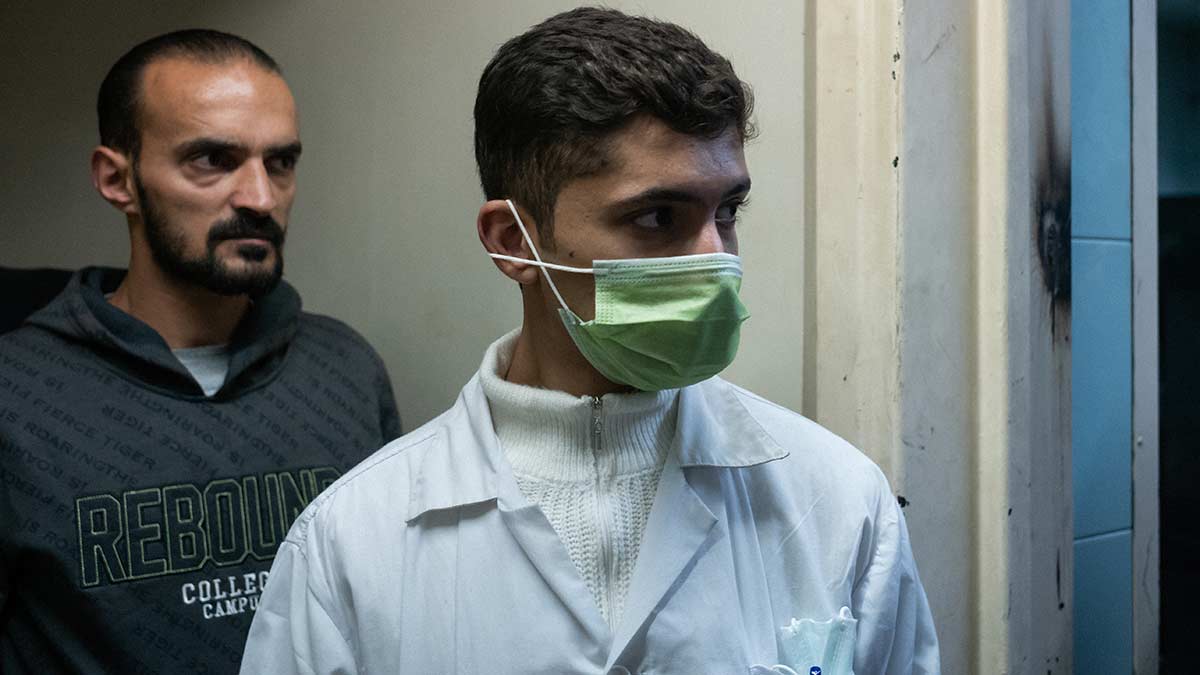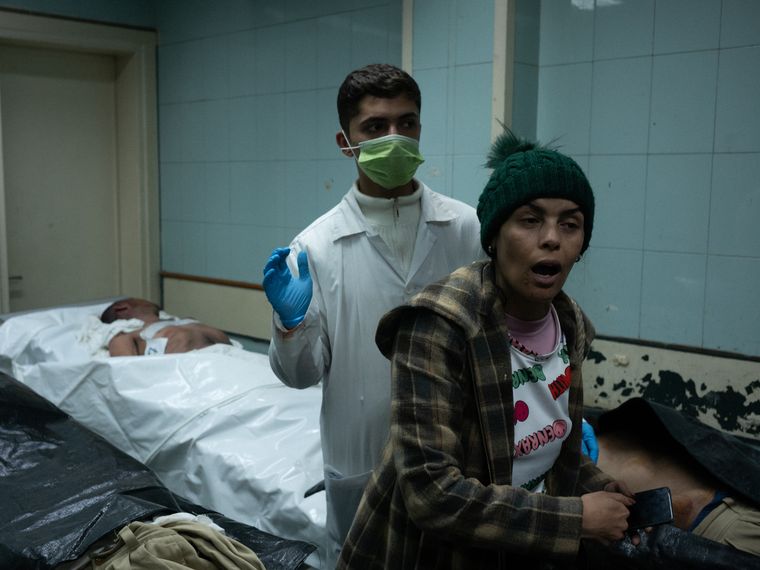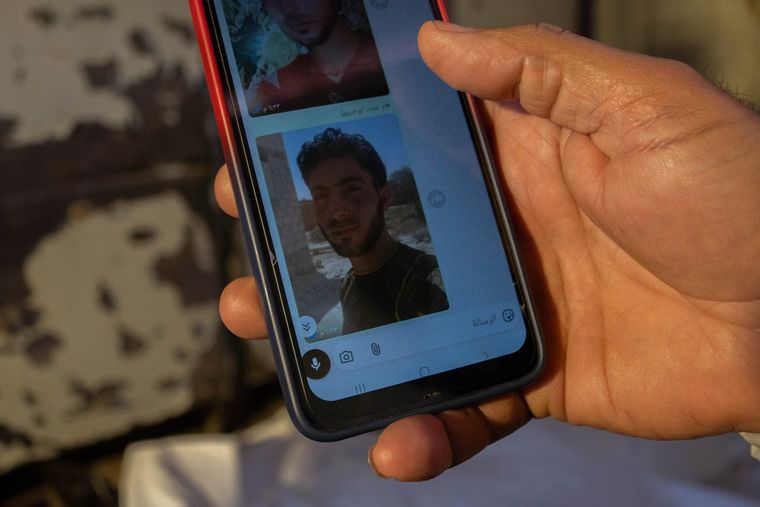DAMASCUS
Head turned towards the sunlight, arm dangling off the edge of the bed, Mohammed lies in a shared ward in Damascus’s Mujtahid Hospital. It seems he is looking at me, but his eyes are distant.
Bruises and dried blood line the side of his face. On his abdomen is a large white dressing, covering what I imagine to be an even bigger injury.
He speaks through persistent coughing. “Praise be to God,” he says, in a low, deep voice.
Mohammed is one of thousands who escaped ousted Syrian president Bashar al-Assad’s infamous Saidnaya prison. When rebel forces, headed by Hayat Tahrir al-Sham (HTS), overthrew Assad in a lightning offensive, prisoners, who once did not dare to dream about stepping out of their vicious daily routine, poured out of the large iron gates.
The prison consists of multiple large, white buildings, located on the top of a hill in the outskirts of Damascus. The prison consisted of a “white” zone overground, and a “red” zone underground, which apparently held the most severely abused prisoners. Conditions in the prison were depraved―in some rooms, there were massive piles of clothes which once belonged to the prisoners. In another room, I found what rebels said was a “human iron press”. There were many bloodied nooses, and in a room with acrid smell, the rebels said, bodies were disposed of using acid.
Mohammed claims he was a former member of the army, and was sentenced to five years for owning a weapon. He served three years.
“This is the best feeling,” he tells me, talking about his escape. But his eyes don’t light up, and his face remains deadpan.
The relative peace in the room is in stark contrast to the chaos outside, where relatives crowd the hospital corridors, holding up old photos of their relatives to every staff member they can find. In a ward, I saw a pool of dried blood on a bare stretcher, and the floors were grimy.
 Surviving the ordeal: Mohammed, a former army man and inmate of Saidnaya prison, recovering at Mujtahid Hospital | Anagha Subhash Nair
Surviving the ordeal: Mohammed, a former army man and inmate of Saidnaya prison, recovering at Mujtahid Hospital | Anagha Subhash Nair
A lady was also searching for her son, and I followed her down the various paths that different staff members pointed us to. Finally we reached a door which had the Arabic word “barraad” scrawled in red marker―“refrigerator”.
I always imagined morgues to hold a heavy silence―I associated the place not with the chaos that death is sometimes preceded by, but the acceptance that inevitably follows. Mujtahid Hospital’s morgue shattered the sanctity of death. There were bodies strewn across the floor and on the tables. The skin was often blackened and the limbs taut in rigor mortis.
In one corner of the room, there was a group of doctors conducting an autopsy. In another corner, there were people walking in, lifting the cover of body bags to check for their missing relatives.
 People walking into the hospital morgue to identify bodies on December 11 | Sami Boudra
People walking into the hospital morgue to identify bodies on December 11 | Sami Boudra
Emotions sometimes ran high.
“Nine people―my brother, husband, brothers-in-law, uncles, cousins―not one of them are here. Where are they, where?” demands Wusayna, her voice bordering a scream. Angry tears are pooling in her eyes.
“The prisons are empty!” someone interjects loudly from behind.
Wusayna says that both her brother and husband were taken away by the regime in 2013. She was one of so many others I spoke to. Some of them were holding up photos of those they were looking for. Others were holding up their phone, asking the doctors if they recognised the photo of a corpse labelled with a number.
Mohammed Shaab had one of those photos. When he received the picture of the labelled body, he was 80 per cent certain that it was his brother―an ex-army man who had been taken away about a decade ago for joining the rebel forces. He came to Mujtahid Hospital, then realised that he had misidentified the body.
Shaab told me that, in 2015, he received information about a government-issued death certificate for his brother, yet heard accounts that his brother was in Saidnaya. He told me that the day before, his friend Abu Shaab, for whom the government had issued a death certificate in 2012, had escaped Saidnaya.
Shaab recounted what his friend told him about the prison.
“On the advice of doctors, the guards gave them one olive and some borghul just to keep them alive,” he said. “The prisoners wanted to die, but they wouldn’t let them.”
 A woman holding the ID card of her missing relative | Sami Boudra
A woman holding the ID card of her missing relative | Sami Boudra
Traversing those rooms, I was surrounded by those who were either holding out hope about finding someone they loved, or still coming to terms with finding a tortured, mutilated version of what remained of them. To me, there was something tender about these feelings―hope, love, grief. The harsh proximity to such a brutal death was paradoxical to the softness of those feelings.
Taking us around was Abdulila, a 24-year-old medical student from Raqqa. He was soft-spoken, yet conducted himself with authority―giving directions to hassled relatives who were searching for their missing ones, and occasionally stopping to assist with medical work. One of the first things I noticed about him was the drops of blood on the sleeve of the lab coat he was wearing.
Following him through a corridor, I told him I had not ever seen anything like what we were witnessing.
“No one has seen things like this,” he replied, disbelief in his voice.
Abdulila told me that there was a massive shortage of medicines and also doctors, as many of them had fled fearing a war.
“We are just students, trying to volunteer in this situation. There is death and illness everywhere, it’s tragic,” he tells me, standing in front of the morgue’s refrigerators.
I asked him how he was feeling. He paused.
“We are all so mentally tired. We were not expecting this magnitude of brutality―not even Hitler did things like this,” he says, his voice rising a little bit in agitation.
 People looking at photos of corpses at the hospital | Anagha Subhash Nair
People looking at photos of corpses at the hospital | Anagha Subhash Nair
“How do you do these things and then come back and live a normal life with people? We didn’t know the magnitude of what he [Assad] was doing―it’s unbelievable,” he continued.
Later, we went to another ward of the hospital, where there were people with firearm-related injuries. Doctors told me that civilians had found weapons abandoned inside buildings, and had tried to use them. A boy I saw had his fingers blown off―his fist was covered in blood, and you could see bare bone poking out.
“It’s chaos,” said the doctors.
A few days later, I saw a large crowd outside the hospital. I went closer, only to find photos of corpses at the hospital pasted on the wall, so that people could identify them.
 Care amid chaos: Abdulila, a 24-year-old medical student from Raqqa, says there was a huge shortage of medicines and doctors | Sami Boudra
Care amid chaos: Abdulila, a 24-year-old medical student from Raqqa, says there was a huge shortage of medicines and doctors | Sami Boudra
In the process of writing this piece, I struggled to put into words the magnitude of the horror I witnessed. The dehumanisation of the dead, when they were still alive. The feeling of a mother who might walk in and discover the body of her son, barely recognisable in a body bag. The internal conflict of a wife who does not know what she would prefer to find―a dead husband, or another dead end. The son surrounded by corpses, wondering what his father’s last moments were like. Every day, there are shocking reports of atrocities like bodies dumped on roadsides and innumerable mass graves.
While talking to me about his brother, the only emotion I could pinpoint in Shaab was that of distress.
“When I received that photo, I had hope that it was my brother, so that we could give him a proper funeral,” he told me.
Now, like many others, he has been hurled back into the vast sea of confusion and conflicting accounts. Victims of the regime might be navigating its waters for a long time to come.




